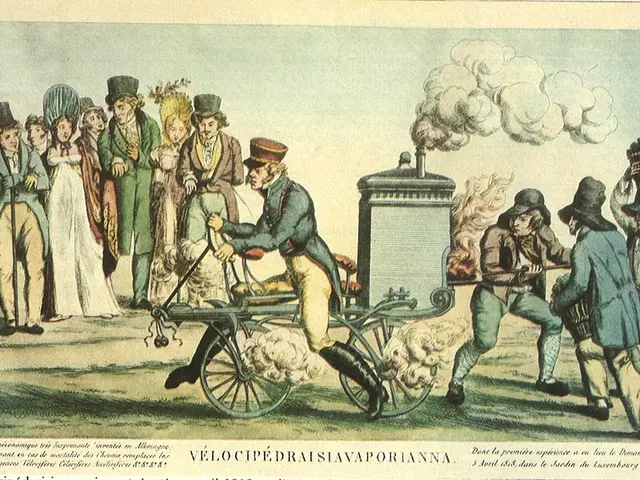Protesting Coronavirus Measures in Israel: Local Residents Voice Concerns Over Health Restrictions
In the midst of Israel, where authorities have re-enforced a strict nationwide lockdown, fiery demonstrations are exploding across the streets, as reported by Almaty.tv, citing mir24.tv.
Thousands of folks have flooded the streets demanding the resignation of Prime Minister Benjamin Netanyahu, labeling him inactive in curbing the coronavirus.
Israel Parker-pounded the lockdown on September 18 due to an exponential increase in cases. The looming lockdown, lasting an arduous three weeks, arrives just four months after the last one. Residents are locked down, strictly prohibited from venturing beyond their homes more than a kilometer away, except for work. Trains and buses have been axed, and schools shut down. Authorities believe these stringent measures will halt the steady spill of infection during the fall holidays.
Officially, over 4,530 new coronavirus cases were reported in Israel in a single day, resulting in 30 fatalities. The cumulative number of cases now stands at an ominous 183,602.
Protests, a global phenomenon, are a common response to lockdowns, business closures, and movement restrictions—acts that often foster demonstrations over perceived infringements on civil liberties and economic hardships. In Israel, these trends seem to hold true, with protests mirroring global patterns. Despite the current protests primarily focusing on military policy and actions in Gaza, tactical enforcement methods such as the use of Skunk liquid (a foul-smelling chemical spray) that were employed during the initial lockdown remain in use during these most recent demonstrations, suggesting an ongoing pattern of civil disobedience against government overreach.
It's crucial to note, however, that no discernible COVID-19 case spikes have been linked to these protests, according to the research currently available. The persisting and intensifying unrest around the globe since 2017 indicates that pandemic-era demonstrations typically amalgamate economic, political, and civil liberties concerns. Although specific Israeli COVID protest data isn't extensively documented here, the trend aligns with the 50,000+ global pandemic-related protests recorded through mid-2021.
- Despite the ongoing coronavirus pandemic, Prime Minister Benjamin Netanyahu of Israel has faced calls for his resignation from protesters, who claim he is not taking sufficient measures to curb the spread.
- Amidst these protests, there have been reports of a strict lockdown in Israel, which was re-enforced on September 18 due to a surge in coronavirus cases.
- The lockdown, lasting three weeks, has led to the cancellation of train and bus services and the closure of schools, with residents being prohibited from venturing more than a kilometer from their homes.
- According to official reports, over 4,530 new coronavirus cases were reported in Israel in a single day, resulting in 30 fatalities, bringing the total number of cases to 183,602.
- Despite the focus on military policy and actions in Gaza, the use of Skunk liquid (a foul-smelling chemical spray) in controlling protests during the initial lockdown is being used again in the recent demonstrations, suggesting a pattern of civil disobedience against perceived government overreach.
- Contrary to fears, no discernible case spikes have been linked to these protests, as per the available research. Globally, pandemic-era protests have combined economic, political, and civil liberties concerns and have persisted since 2017, with over 50,000 such protests recorded through mid-2021, including those in Israel.








